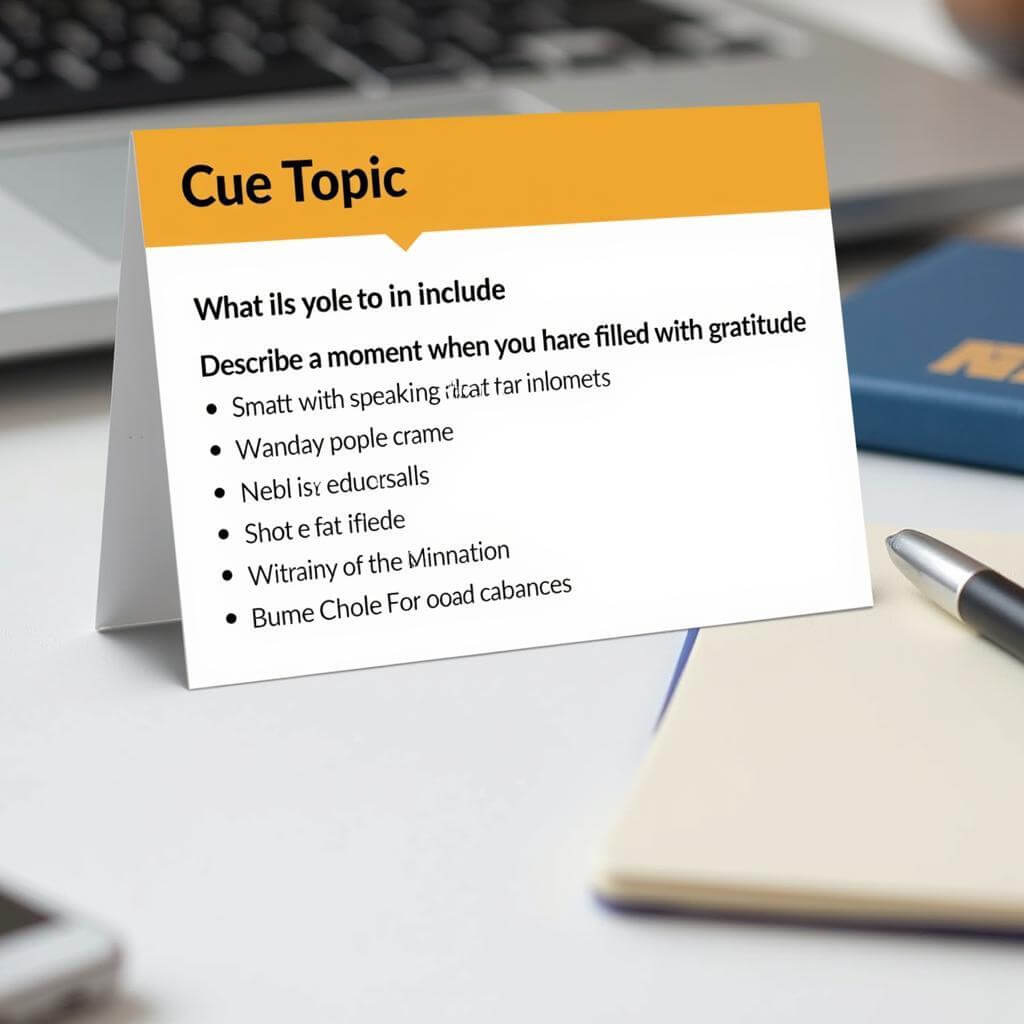The IELTS Speaking test often includes questions about personal experiences and emotions. One such topic that frequently appears is describing a time when you felt excited about the future. This question allows examiners to assess your ability to express emotions, narrate events, and use appropriate vocabulary. Let’s explore how to approach this topic effectively to maximize your IELTS Speaking score.
Part 1: Introduction and Interview
In Part 1, the examiner may ask general questions about excitement and the future. Here are some potential questions and sample answers:
Q: Do you often feel excited about the future?
Band 6-7 Answer:
Yes, I do. I’m generally an optimistic person, so I often look forward to what’s coming next in my life. Whether it’s about my studies or personal goals, I usually feel quite positive about the future.
Band 8-9 Answer:
Absolutely! I’m inherently optimistic and tend to approach the future with a sense of anticipation and enthusiasm. Whether it’s related to my academic pursuits, career aspirations, or personal endeavors, I find myself consistently energized by the possibilities that lie ahead. This excitement serves as a powerful motivator, driving me to set ambitious goals and work diligently towards achieving them.
Part 2: Long Turn
Here’s a sample cue card for this topic:
Describe a time when you felt excited about the future
You should say:
- When it was
- Why you felt excited
- What you were looking forward to
- And explain how this excitement affected your actions
Band 6-7 Sample Answer:
I remember feeling really excited about the future when I got accepted into university. It was about three years ago, in my final year of high school. I was excited because getting into this university was a big goal of mine, and I had worked hard to achieve it. I was looking forward to starting a new chapter in my life, meeting new people, and studying subjects I was passionate about.
This excitement affected my actions in several ways. I started researching more about the university and the courses I would be taking. I also began planning what I would need for my new life as a university student, like looking for accommodation and thinking about which clubs I might join.
Band 8-9 Sample Answer:
I vividly recall a moment of intense excitement about the future that occurred approximately three years ago, during my final year of high school. The catalyst for this exhilaration was receiving my acceptance letter from my dream university. This achievement was the culmination of years of diligent studying and extracurricular involvement, making the realization of this goal particularly sweet.
The prospect of embarking on this new academic journey filled me with an overwhelming sense of anticipation. I was eagerly looking forward to immersing myself in a challenging intellectual environment, engaging with like-minded peers, and delving deeper into subjects that truly ignited my passion. Moreover, the opportunity to live independently in a new city added an extra layer of excitement to this upcoming chapter of my life.
This surge of excitement had a profound impact on my subsequent actions. It served as a powerful motivator, prompting me to meticulously plan every aspect of my impending university life. I found myself voraciously researching the university’s history, culture, and academic offerings. Additionally, I began networking with current students and alumni, seeking their insights to better prepare myself for the transition.
Furthermore, this excitement sparked a renewed sense of purpose in my final months of high school. I approached my studies with increased vigor, determined to finish strong and enter university with momentum. Simultaneously, I started developing practical life skills that would be crucial for independent living, such as budgeting and cooking.
In essence, this period of excitement about my future university experience acted as a catalyst for personal growth and preparation, setting the stage for a successful transition into higher education.
Follow-up questions:
- How do you think people’s excitement about the future changes as they get older?
- Do you think it’s important for people to feel excited about their future? Why or why not?
Band 6-7 Answer (Question 1):
I think as people get older, their excitement about the future might change. When we’re young, we’re often excited about big things like education or career. As we get older, we might get excited about different things, like starting a family or achieving personal goals. The level of excitement might be different too, maybe less intense but more steady.
Band 8-9 Answer (Question 1):
I believe that the nature and focus of people’s excitement about the future undergoes a significant transformation as they age. In youth, excitement often centers around major life milestones such as education, career choices, and newfound independence. This excitement tends to be more intense and wide-ranging, as young people envision a vast array of possibilities.
As individuals progress through life, their excitement typically becomes more nuanced and specific. It may shift towards personal growth, family milestones, or achieving long-term goals. While the intensity might diminish, the excitement often becomes more profound and meaningful, rooted in a deeper understanding of oneself and one’s values.
Moreover, with age comes a greater appreciation for the present moment, which can temper excitement about the future with a sense of contentment in the now. This balanced perspective often leads to a more sustainable and fulfilling form of anticipation for what lies ahead.
 Mature couple excited about retirement plans
Mature couple excited about retirement plans
Part 3: Two-way Discussion
Q: How do you think technological advancements will affect people’s excitement about the future?
Band 6-7 Answer:
I think technological advancements will probably increase people’s excitement about the future. New technologies like artificial intelligence and virtual reality are developing quickly, and they could change many aspects of our lives. This might make people more excited about what the future holds, especially in terms of how we work, communicate, and entertain ourselves.
Band 8-9 Answer:
I believe technological advancements will have a profound and multifaceted impact on people’s excitement about the future. On one hand, the rapid pace of innovation in fields such as artificial intelligence, biotechnology, and space exploration is likely to spark immense enthusiasm and anticipation about the possibilities these technologies hold for improving our lives and solving global challenges.
For instance, breakthroughs in medical technology could generate excitement about the potential for longer, healthier lives, while advancements in renewable energy might fuel optimism about a more sustainable future. The prospect of technologies like virtual and augmented reality revolutionizing how we work, learn, and interact could also be a source of considerable excitement.
However, it’s important to note that technological progress may also breed anxiety and uncertainty for some. Concerns about job displacement due to automation, privacy issues, or the ethical implications of certain technologies could temper excitement with apprehension.
Ultimately, I believe the net effect will be increased excitement, particularly among younger generations who are more adaptable to technological change. This excitement will likely be tempered with a sense of responsibility to ensure that technological advancements are harnessed for the greater good of society.
Key Vocabulary and Phrases for High Scores
-
Anticipation (noun) /ænˌtɪsɪˈpeɪʃn/ – a feeling of excitement about something that is going to happen
Example: The anticipation of starting university kept me motivated during my final school exams. -
Exhilaration (noun) /ɪɡˌzɪləˈreɪʃn/ – a feeling of great happiness and excitement
Example: The exhilaration of receiving my acceptance letter was overwhelming. -
To be filled with (phrase) – to experience a strong emotion
Example: I was filled with excitement when I thought about my future career prospects. -
Catalyst (noun) /ˈkætəlɪst/ – something that causes an important event to happen
Example: Getting that internship was the catalyst for my excitement about a career in finance. -
To spark (verb) /spɑːk/ – to cause the start of something, especially a feeling or an idea
Example: The guest speaker’s talk sparked my excitement about the possibilities in renewable energy.
Examiner’s Advice
To achieve a high score in the IELTS Speaking test when discussing excitement about the future:
- Use a variety of vocabulary to describe emotions and experiences. Don’t just rely on words like “happy” or “excited”.
- Provide specific examples and personal anecdotes to support your points.
- Practice expressing your ideas fluently and coherently. Use linking words to connect your thoughts.
- Show your ability to discuss abstract concepts, especially in Part 3.
- Demonstrate a range of grammatical structures, including complex sentences.
Remember, the key to success is not just in what you say, but how you say it. Practice regularly, record yourself, and listen back to identify areas for improvement. Good luck with your IELTS preparation!
If you’re looking for more IELTS Speaking practice, you might find it helpful to describe a personal project you completed successfully. This topic can also help you express enthusiasm and describe achievements, which are valuable skills for discussing excitement about the future.


